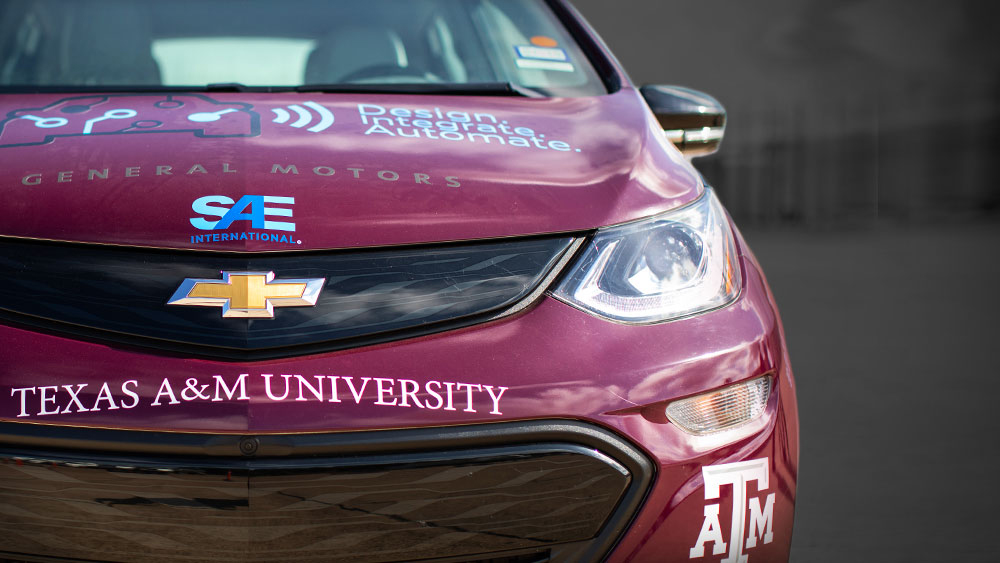
A team of more than 40 engineering students from the College of Engineering at Texas A&M University placed second in the overall cumulative score ranking at the 2020 AutoDrive Challenge. They are currently the top team in the United States.
Hosted by General Motors and the Society for Automotive Engineers, the competition challenges teams to develop and demonstrate a fully autonomous vehicle that can navigate an urban driving course. The competition events, which increase in difficulty each year, test both the team’s car and their technical skills.
The Texas A&M engineering team, known as “The 12th Unmanned,” included students from multiple departments across the college, including mechanical, electrical and computer, civil, and computer science engineering. Dr. Dezhen Song, professor in the Department of Computer Science and Engineering, served as the faculty project lead.
“We are extremely proud of our team and how they overcame the unforeseen challenges brought by the COVID-19 pandemic to achieve this great success,” said Song.
This year was the third competition milestone of the challenge, which was held virtually. It was originally scheduled to be held last spring at the Transportation Research Center in East Liberty, Ohio, but was postponed.
While last year’s competition focused on driving scenarios with static and dynamic objects, the goal of this year’s challenge was to design a robot taxi in order to simulate an autonomous ride-sharing scenario.
“The year-three competition went deeper into the application domain of autonomous driving,” said Song. “Not only did we have to deal with the known issues in a self-driving car, but we also had to consider realistic challenges in robot taxi applications such as the handling of street closures or interacting with passengers.”
With the live events postponed, the teams were judged on their “static event” team scores, which were based on presentations and technical reports that they submitted remotely. These included an overall conceptual design, several computer simulations and an analysis of the social responsibility aspect of their design.
Originally designed to be a three-year competition, the AutoDrive Challenge has been extended to a fourth year, which is scheduled to take place sometime in 2021. In the coming year, the team will focus on updating their previous report and gearing up to show what the past three years of development and learning have produced.
“Due to the pandemic, the team did not get the chance to show off their proudest development, which is the vehicle itself,” said Song. “But the progress that they’ve made will be shown in the year four competition, so we are really looking forward to that.”